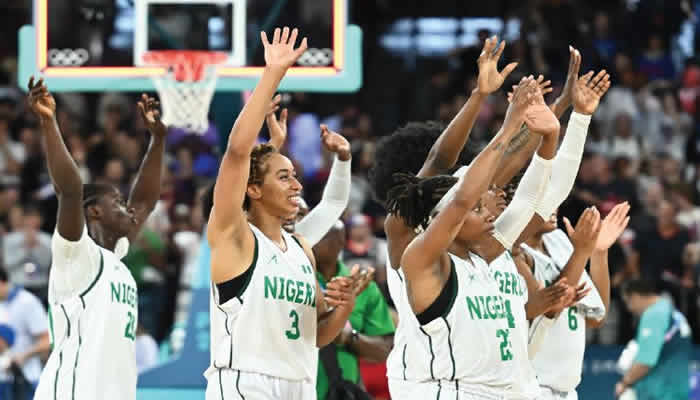Nigeria’s D’Tigress etched their names into African basketball history, clinching an unprecedented fifth consecutive FIBA AfroBasket Women’s title with a commanding 78-64 victory over Mali. This triumph, achieved in Abidjan, Ivory Coast, not only extended their reign of dominance but also shattered Senegal’s long-standing record of four consecutive titles, set between 1974 and 1981. The victory marked Nigeria’s seventh AfroBasket title overall, solidifying their position as the leading force in women’s basketball on the continent. The win also secured Nigeria an automatic berth in the 2026 FIBA Women’s World Cup, further cementing their status as a global basketball power.
The game itself was a testament to Nigeria’s resilience and tactical prowess. Despite Mali’s strong start and a 26-21 lead at the end of the first quarter, Nigeria, under the guidance of coach Rena Wakama, regrouped and systematically dismantled their opponents’ advantage. The second quarter ended with a tied score of 41-41, setting the stage for a thrilling second half. Nigeria then took control in the third quarter, outscoring Mali 20-15, and maintained their momentum in the final period, closing out the game with a 17-8 run to secure the championship. This victory extended Nigeria’s remarkable unbeaten streak in the FIBA Women’s AfroBasket tournament to an astounding 29 games, a run spanning a decade of unparalleled success.
Nigeria’s success was built upon a foundation of balanced scoring, efficient shooting, and disciplined defense. Their superior field goal percentage of 49.18% compared to Mali’s 37% highlighted their offensive effectiveness. While both teams struggled from beyond the arc, Nigeria’s dominance inside the paint, converting 59.46% of their two-point attempts, proved decisive. This inside presence, coupled with their ability to generate points off turnovers (17 points from 17 Mali turnovers), ultimately swung the game in their favor.
Individual brilliance shone brightly within the collective Nigerian effort. Guard Ezinne Kalu led the scoring with 20 points, complemented by five assists and four rebounds. Amy Okonkwo, named the tournament’s Most Valuable Player for the second consecutive time, delivered a crucial double-double with 19 points and nine rebounds. Murjanatu Musa’s 12 rebounds and nine points underscored Nigeria’s dominance on the boards, while veteran point guard Promise Amukamara orchestrated the offense with a game-high 11 assists. The bench also contributed significantly, adding 22 points to the total. This balanced scoring attack, combined with a strong defensive effort limiting Mali’s offensive opportunities, showcased Nigeria’s depth and versatility.
Mali, despite their valiant effort, struggled to match Nigeria’s experience and composure. While their youthful squad displayed flashes of brilliance, they were ultimately unable to overcome the seasoned Nigerian team. Players like Sika Koné and Djeneba N’Diaye showed promise, but Nigeria’s ability to capitalize on key moments and maintain their discipline throughout the game proved to be the difference. Mali will, however, join Senegal and South Sudan in the World Cup qualification pathway. South Sudan’s bronze medal finish, their first ever in the AfroBasket tournament, signifies the increasing competitiveness of women’s basketball across the continent.
The victory resonated across Nigeria, sparking celebrations and messages of congratulations. President Bola Tinubu praised the D’Tigress, hailing their achievement as a source of national pride and inviting the team to a presidential reception. The win not only adds another chapter to Nigeria’s rich basketball history but also serves as an inspiration for aspiring athletes across the country. The D’Tigress’s consistent success underscores the growth and development of women’s basketball in Nigeria and establishes them as a role model for future generations.
This latest triumph further cements Nigeria’s dynasty in African women’s basketball. Their five consecutive titles represent a level of sustained excellence rarely seen in international sports. With a blend of seasoned veterans and emerging talent, the D’Tigress are poised to continue their dominance in the years to come. Their success also highlights the growing strength of African women’s basketball as a whole, with teams like Mali and South Sudan demonstrating their increasing competitiveness on the continental stage. Nigeria’s victory serves as a powerful statement of their intent to maintain their position at the pinnacle of African basketball and compete at the highest level on the global stage.


